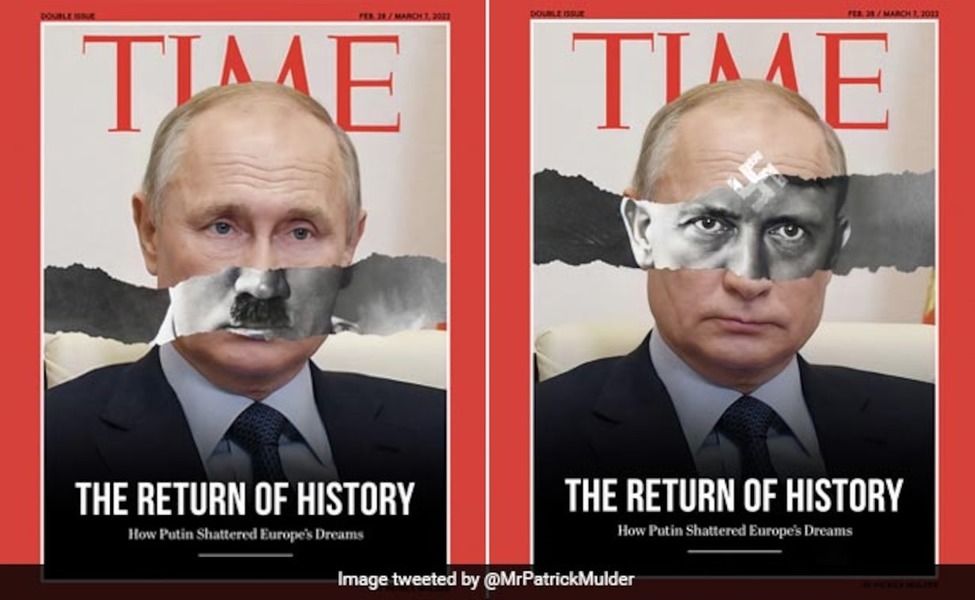Russia is launching an unprecedented military reform in its armed forces since 1945, set to practically double the number of troops. Moscow intends to create two new military districts close to the Baltic States and Finland, as well as to put into service a number of new types of weapons. Russian industry has already de facto switched to military rails, while Vladimir Putin, during a revealing chat with WW2 veterans, delivered a veiled announcement for extending the “special military operation” for an indefinite period.
Humanity is now at a defining stage in its recent history. Putin is seriously determined to change the existing world order, which was created as a result of the victory over Nazism in the Second World War. De facto, he seeks to revive totalitarianism and bloc confrontation.
Russian political and social reality is filled with such perverse clichés that it gives Putin all the prerequisites for manipulating public opinion in order to justify a war of aggression against Ukraine. The so-called “SMO” is an unprecedented challenge for European security because Putin is encroaching on other countries’ borders – a precedent unheard of since the signing of the Helsinki Act in 1975. The Kremlin leader is bracing for an indefinite war – a certain analogy can be drawn with Hitler and Mussolini, who on the eve of the Second World War pursued a number of territorial conquests in Europe and Africa. Accordingly, reforms are underway in the Russian army, which provide for an unprecedented increase in production of weapons and military equipment. Taking into account the bureaucracy inherent in Russia and the extremely slow implementation of their plans, the reform was extended for three years – it should reach the final stage in 2026.
Until then, Russian citizens will be exploited as cannon fodder and any slightest resistance to mobilization will be severely prosecuted. During Putin’s speech on the occasion of the 80th anniversary of the breakthrough of the Leningrad blockade, he directly hinted to the Russians that the war will continue and that they have no choice but to obediently join it.
How far Putin’s aggression will go depends on whether he succeeds in Ukraine. If he is not stopped now, until he has adapted his army and economy to the requirements of a major war, he may well announce «demilitarization» and «de-Nazification» of the EU, at least some of its countries. Russian propaganda is already beginning to spin narratives about «Nazism in Europe,» creation of the «Warsaw People’s Republic,» «the return of Lithuania back home to Russia,» etc.
It would be unacceptable to ignore something like this: an immense threat is actually looming over Europe. It cannot even be compared with Nazism – perhaps the Mongol invasion of the 13th century is a better comparison.
Putin dreams of seeing Russian tanks on the streets of European cities – and he will see them there if not enough tanks are provided to Ukraine today.

